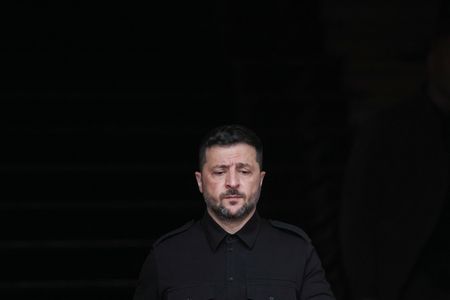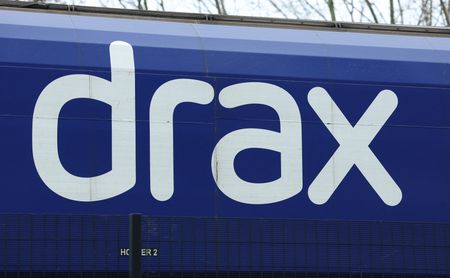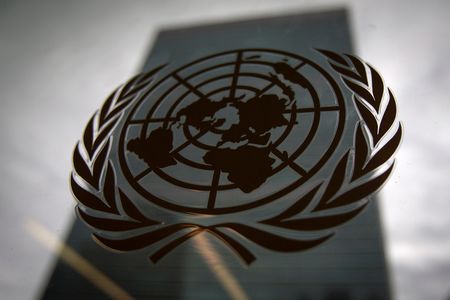LONDON/TEL AVIV (Reuters) -President Donald Trump said the United States would take over war-ravaged Gaza and create a “Riviera of the Middle East” after resettling Palestinians elsewhere, shattering decades of U.S. policy on the Israeli-Palestinian conflict.
The shock move drew swift condemnation from regional heavyweight Saudi Arabia which Trump hopes will establish ties with Israel.
Israel’s shekel currency was largely flat against the dollar on Wednesday, trading at 3.56 versus the dollar. Israeli and Lebanese sovereign bonds were flat to higher, while those of Jordan and Egypt were flat to lower.
COMMENTS:
MARTEN BRESSEL, PORTFOLIO MANAGER AND TRADER, FIM PARTNERS, LONDON:
“There is a big question mark around how credible these statements (by Trump) are.”
“There has been some moderate reaction though, “specifically Jordan and Egypt (bonds) are down compared to the rest of high yield and Egypt’s FX forwards are a bit weaker too.”
“When you see days like this, with these kinds of headlines you have reactionary moves, but generally the momentum (in investor sentiment towards the Middle East following the political reshaping in recent months) has been positive.”
MODI SHAFRIR, CHIEF STRATEGIST FOR FINANCIAL MARKETS, BANK HAPOALIM, TEL AVIV:
“The risks to Israel will decline in the short term and that’s good for the shekel and local markets and also since it appears the coalition will not fall apart.”
ALEX ZABEZHINSKY, CHIEF ECONOMIST, MEITAV DASH BROKERAGE, TEL AVIV:
“The markets are reacting in a subdued manner. The gap between the announced plans and their implementation is too great to react to the news in a meaningful way.”
PAUL DONOVAN, CHIEF ECONOMIST, UBS GLOBAL WEALTH MANAGEMENT, LONDON:
“Trump’s comments on Gaza and potential U.S. military occupation are not being taken seriously by investors. There may be ramifications in bringing about a broader peace settlement, and comments like these also possibly lessen the importance ascribed to other pronouncements – comments like tariffs being an obvious area.”
YONIE FANNING, CHIEF STRATEGIST, MIZRAHI TEFAHOT BANK, TEL AVIV:
“We’re seeing a positive market response to the initiative, this morning in the shekel, and also and at the opening of the TASE (Tel Aviv stock exchange). The equity response being primarily centred around banks gives a good example on how such a geopolitical improvement could tame local risks and support the local economy.”
DAVID MAKOVSKY, DIRECTOR OF THE PROGRAM ON ARAN-ISRAEL RELATIONS, WASHINGTON INSTITUTE OF NEAR EAST POLICY (ON X):
“Until the WH (White House) press conference, (Trump’s)call for moving Gazans was seen largely as a negotiating ploy: maximalist opening position before reaching a deal–standard operating approach.
“Is this still the case? If no longer true, there will be a clamour for the WH to provide more of a blueprint of his proposal on a variety of levels so it is not dismissed. Yet, in immediate sense, Trumps remarks seems to shift media focus away from question of Phase Two of Ceasefire that is supposed to begin later this month. Overlooked, with focus on Trump, is that PM @netanyahu made clear at the press conference Israel would resume the fight against Hamas.”
FRANCESCO PESOLE, FX STRATEGIST, ING, LONDON:
“Markets are treating Trump’s announced intention to take over the Gaza Strip and evacuate Palestinians to neighbouring countries with scepticism. Should we see hints that the U.S. is planning to deploy troops in the Middle East, the market implications can be risk-off, oil-positive and dollar-positive, as Arab nations should firmly oppose the move.”
ALVIN TAN, HEAD OF ASIA FX STRATEGY, RBC CAPITAL MARKETS, SINGAPORE:
“There’s no discernible reaction. I think in general people are quite skeptical. Number one, those comments came out of nowhere. It upends long standing US policy. In general people are thinking he was just making comments off the cuff and this is not likely to be followed up as genuine U.S. foreign policy.
(Reporting by Steven Scheer, Harry Robertson, Libby George and Marc Jones, Compiled by Dhara Ranasinghe, Editing by Amanda Cooper)











